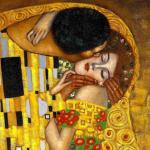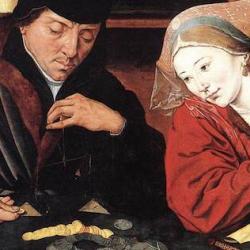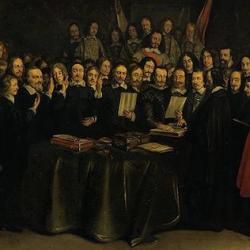Paul Veyne, When Our World Became Christian, 312-394 (trans. Janet Lloyd; Cambridge, UK: Polity, 2010). Paperback, 248 pages; $24.95.
Paul Veyne is one of France’s leading classical scholars, an Honorary Professor at the College de France and author of recognized classics like Bread and Circuses and Did the Greeks Believe in Their Myths? In his latest book, When Our World Became Christian, 312-394, Veyne ventures into late antiquity to examine the Constantinian revolution. Small as it is, it has a magisterial quality. Veyne writes ancient history with the casual authority displayed only by those who have spent the better part of a lifetime in the archives.
Constantine, he says, “was sincere,” then adds, “but that it to put it mildly.” Veyne disdainfully observes that “only someone who had never read his works” could think of Constantine as a half-pagan syncretist. He never confused Christ with the sun god, and used the word “sol” only when he was stressing that “the sun, moon, stars and elements are all governed by the all-powerful God.” “What is there to show that he was Christian?” Veyne asks. He answers, “Well, all his public actions, his wars, his laws!” Contemporary historians, he says, “whether confessional or unbelievers, are in agreement regarding Constantine as a sincere believer.” Only Christians themselves have so far failed to get the memo.
Constantine didn’t merely become a genuine Christian. He saw himself as a chosen vessel to bring Christianity to the Roman world and the world beyond the empire. Veyne is right that there’s an element of megalomania in the man, but he’s equally right in seeing that his ambition was roused to achieve Christian goals: “Constantine did not force the altar into serving the throne, but put his throne at the service of the altar.” Contrary to many accounts that picture Constantine as a totalitarian, Veyne rightly notes that Constantine tolerated paganism and took no official action against Jews.
Veyne spends a good bit of time rebutting the claim that Constantine’s adoption of Christianity was a shrewd ideological maneuver designed to provide religious “glue” for a fracturing empire. He argues that the Emperor’s personal religious devotion was largely irrelevant to the population at large. Whether the Emperor worshiped Jupiter or Jesus, Romans went about their business unmolested. Ideology would have been redundant in any case, given that “nothing is more common than obedience of entire peoples” to established order.
Far from being cynically ideological, Constantine’s conversion ran the risk of alienating many. Veyne repeats J. B. Bury’s startling but accurate judgment: “It must never be forgotten that Constantine’s revolution was perhaps the most audacious act ever committed by an autocrat in disregard and defiance of the vast majority of his subjects.”
There are a few minor misrepresentations in the book. Veyne, in my view, somewhat exaggerates Constantine’s role at Nicea and his authority within the church, and makes too little of the way that Constantine’s support of the church and his polemics against paganism created an “atmosphere” (Peter Brown’s word) of disapproval toward traditional Roman religion. He also underestimates the role that “political theology” played in pre-Christian Rome (on which, see Elizabeth Digeser, The Making of a Christian Empire, 1999). Still, on Constantine, Veyne gets virtually all the big issues right.
Though not a believer, Veyne gets Christianity and the church right too. His suggestion that Christianity was a late antique “avant garde” is illuminating, and he calls Christianity a creative “best-seller” or “masterpiece” that infused a new “unsuspected sensibility” into the Roman imagination, much as a great piece of literature extends the horizons of human vision. Veyne thinks of Christianity in aesthetic terms because he does not believe it is true, but his exploration of this theme explains some of the appeal of Christianity to fourth-century Romans.
Veyne communicates a sense of how odd the church looked to late Romans. Here was a community as devoted to the pursuit of Truth and Goodness as a philosophical school, yet, unlike the schools, open to everyone, including slaves and women. Here was a religion without sacrifice, worship without images of the god. Here was a God who made total claims and radical demands on his worshipers, unlike the pagan gods.
Here was a novelty that claimed that all the traditional Roman gods were false. In place of the many stories about the gods, Christianity told one story, but said it was the story that encompassed all and everything. By comparison with the Roman deities, the Christian God was “gigantic,” Creator, Lawgiver, Savior, Lord. The church had authoritative leaders and enforceable rules like a city, but Christians were bound by no ties of blood or soil. Apart from diaspora Judaism (which still had an ethnic basis), antiquity had seen nothing like the church. No wonder pagan Emperors tried to expel it as an alien impurity infecting the body politic.
Peppered throughout the book are comments about the role of religion in human history. Veyne is a decided anti-reductionist. Religion is an independent factor in history, and cannot be unmasked as a cover for power or economic or social interest. He also places refreshing emphasis on novelty in history. For Veyne, novelty is what history is: History recounts eruptions that cannot be explained by any pre-existing trends or causes.
Originally published in France in 2007, When Our World Became Christian is Veyne’s contribution to the ongoing debate about Europe’s Christian roots (a debate in which Pope Benedict XVI and Jurgen Habermas have weighed in). Veyne doesn’t think that Europe has “roots” in Christianity because he doubts that Europe has roots at all: Europe “has created itself through unpredictable stages; none of its components are more original than any others.”
Whether Europeans accept that debatable conclusion or not, Veyne’s slim volume is an essential antidote to the misinformation about Europe’s Christian beginnings that has become the received orthodoxy. And, for the same reason, it is a gift to American Christians as well.












